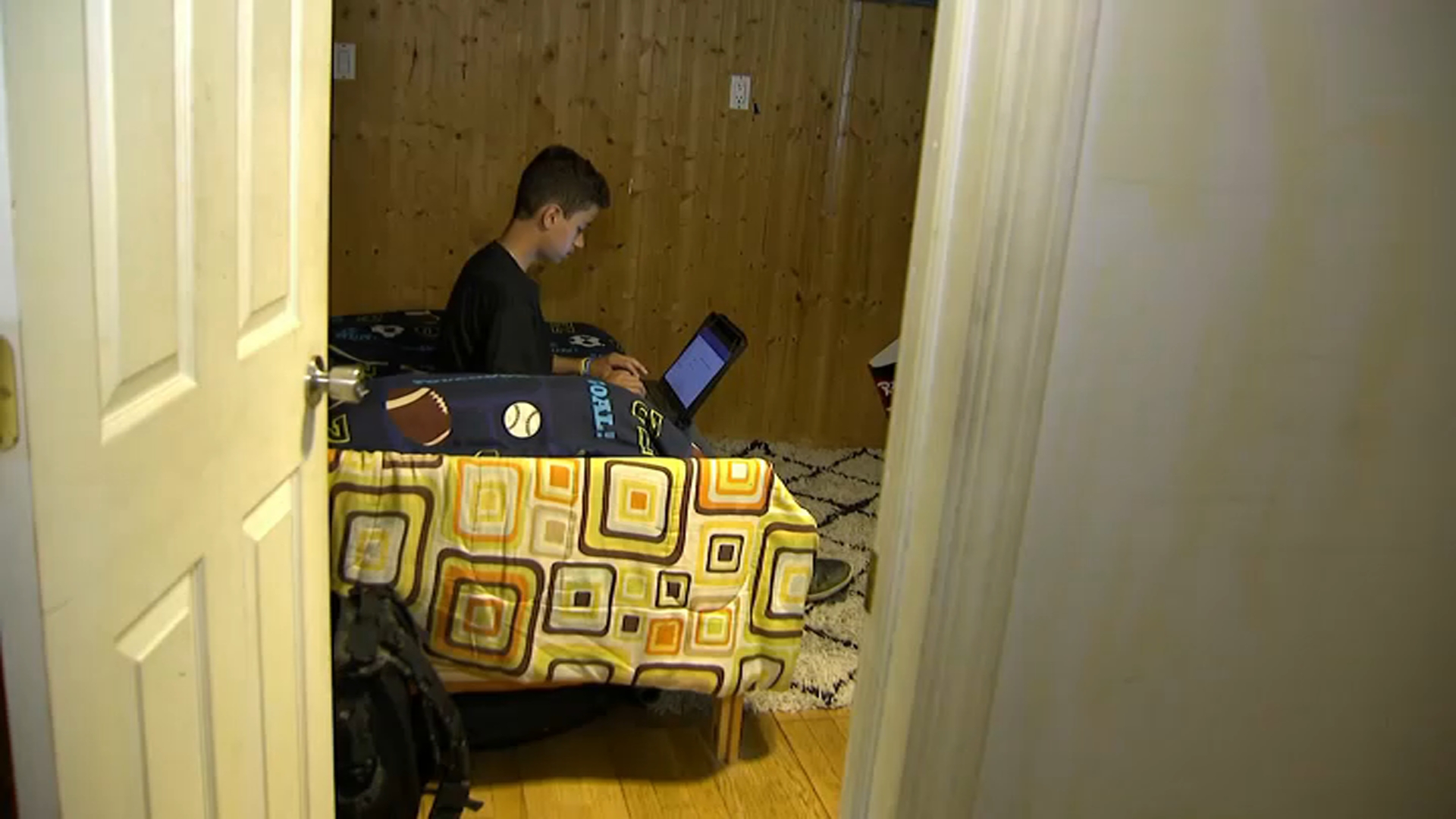School Employee Arrested: Allegations & Safety Concerns
Shocking Allegations: California School Employee Arrested for Sex with Underage Student
A Community in Crisis: Introduction to the Allegations
The news has sent shockwaves through the Contra Costa School of the Performing Arts (CCSPA) community. Gerard Flaherty, a staff member entrusted with the well-being of students, has been arrested on allegations of engaging in sexual activity with an underage student. It’s the kind of headline that makes you stop and ask, "How could this happen?" The immediate reaction is a mixture of disbelief, anger, and a deep concern for the victim and the overall safety of the school environment. Let's delve into the details and explore the implications of this disturbing situation.
The Accusation: What We Know So Far
The allegations against Gerard Flaherty, who served as the school's climate and culture supervisor, are undeniably serious. According to reports, he was arrested by Walnut Creek police and subsequently placed on leave. The charges suggest a gross violation of trust and a betrayal of the responsibilities associated with his position. The specific details of the alleged incident(s) remain under investigation, but the very nature of the accusation is enough to trigger outrage and demand immediate action.
School's Response: Acknowledging the Gravity
In the wake of Flaherty's arrest, CCSPA released a statement emphasizing their commitment to student safety. "Creating a safe learning environment for our students is the top priority," the school declared. This statement, while necessary, also raises questions about whether existing safety protocols were adequate and whether any red flags were missed. The school's response will be crucial in reassuring parents and students that they are taking the allegations seriously and are committed to preventing future incidents.
Parents' Concerns: A History of Suspicion?
Perhaps the most unsettling aspect of this case is the assertion by some parents that they had previously raised concerns about Flaherty's behavior. Antinitte Watkins, a mother of a student at CCSPA, alleges that she reported suspicious behavior months ago. Her claim that Flaherty's "boundaries are completely off" and that her concerns were "swept under the rug" is deeply troubling. These allegations suggest a potential systemic failure to address warning signs and protect students. Was this an isolated incident, or part of a larger pattern?
Walnut Creek Police Investigation: Seeking Justice
The Walnut Creek Police Department is actively investigating the allegations against Gerard Flaherty. Their investigation will likely involve interviewing students, staff, and parents, as well as gathering any relevant evidence to determine the extent of the alleged misconduct. The thoroughness and impartiality of the investigation are paramount to ensuring that justice is served and that the truth comes to light. The community is eagerly awaiting the results of this investigation, hoping for a swift and fair resolution.
Gerard Flaherty: The Accused
Who is Gerard Flaherty?
Gerard Flaherty, 43, held the position of climate and culture supervisor at CCSPA. This role suggests that he was responsible for fostering a positive and supportive environment for students. The irony of being accused of violating the very principles he was meant to uphold is not lost on anyone. Further information about Flaherty's background, employment history, and any prior incidents is likely to emerge as the investigation progresses.
CCSPA: A School Under Scrutiny
The Impact on the School's Reputation
The allegations against Flaherty inevitably cast a shadow over CCSPA. The school's reputation, built on trust and a commitment to student well-being, is now under intense scrutiny. The administration faces the difficult task of restoring confidence and demonstrating that they are taking all necessary steps to ensure the safety and security of their students. How the school handles this crisis will ultimately determine its long-term reputation and viability.
Legal Ramifications: Potential Charges and Penalties
Depending on the findings of the police investigation, Gerard Flaherty could face a range of criminal charges, including sexual abuse of a minor. The penalties for such crimes are severe, potentially including lengthy prison sentences and a lifetime of registration as a sex offender. The legal process is complex and will involve gathering evidence, presenting arguments in court, and ultimately determining Flaherty's guilt or innocence. The outcome of the legal proceedings will have significant consequences for both Flaherty and the victim.
The Victim: Prioritizing Support and Healing
While the legal process unfolds and attention is focused on the accused, it is crucial to remember the victim at the center of this tragedy. The trauma of sexual abuse can have lasting effects on a young person's mental and emotional health. Providing comprehensive support, including counseling, therapy, and a safe and supportive environment, is essential for the victim's healing and recovery. The community must rally around the victim and offer unwavering support during this incredibly difficult time.
School Safety Protocols: Are They Enough?
This incident raises fundamental questions about the effectiveness of school safety protocols. Are background checks thorough enough? Are staff adequately trained to identify and report suspicious behavior? Are there sufficient mechanisms in place for students and parents to report concerns without fear of retaliation? A comprehensive review of existing safety protocols is necessary to identify weaknesses and implement improvements to prevent future incidents. We must do everything in our power to create a safe and secure learning environment for all students.
The Role of the Community: Vigilance and Open Communication
Protecting children is a shared responsibility. Parents, educators, and community members must work together to create a culture of vigilance and open communication. Parents should be encouraged to talk to their children about boundaries and safety, and to report any concerns to the appropriate authorities. Schools should foster an environment where students feel safe and empowered to speak out if they experience or witness any inappropriate behavior. Only through collective effort can we effectively protect our children from harm.
Preventing Future Incidents: Lessons Learned
Implementing Mandatory Reporting and Training
One of the key lessons learned from this case is the importance of mandatory reporting requirements and comprehensive training for school staff. All employees should be required to report any suspected child abuse or neglect to the authorities. They should also receive regular training on how to identify and respond to potential warning signs. By equipping staff with the knowledge and tools they need to protect students, we can create a safer school environment.
The Power of Social Media: Amplifying the Conversation
In today's digital age, social media plays a significant role in shaping public opinion and amplifying the conversation around important issues. The allegations against Gerard Flaherty have generated considerable discussion on social media platforms, with parents, students, and community members expressing their outrage and demanding accountability. While social media can be a powerful tool for raising awareness and mobilizing action, it is also important to ensure that information is accurate and that the focus remains on supporting the victim.
The Ongoing Investigation: Awaiting the Truth
As the police investigation continues, the community remains on edge, awaiting the truth to emerge. The outcome of the investigation will have far-reaching consequences for Gerard Flaherty, CCSPA, and the victim. It is essential that the investigation be conducted thoroughly and impartially, and that all parties are held accountable for their actions. The pursuit of justice is paramount to restoring trust and ensuring that such incidents are prevented in the future.
Moving Forward: Healing and Accountability
Restoring Trust and Creating a Safe Environment
The road to recovery for CCSPA and the community will be long and challenging. Restoring trust requires transparency, accountability, and a genuine commitment to creating a safe and supportive environment for all students. The school must take concrete steps to address the concerns raised by parents, implement stronger safety protocols, and provide comprehensive support to the victim. By learning from this tragedy and taking decisive action, we can work towards preventing future incidents and ensuring the well-being of our children.
Conclusion: Key Takeaways and the Path Forward
The arrest of Gerard Flaherty on allegations of having sex with an underage student has shaken the CCSPA community to its core. This incident highlights the importance of robust school safety protocols, mandatory reporting requirements, and a culture of vigilance and open communication. The focus must remain on supporting the victim, pursuing justice, and preventing future incidents. Only through collective effort and unwavering commitment can we ensure the safety and well-being of our children and restore trust in our educational institutions. This is a moment for reflection, action, and a renewed dedication to protecting our most vulnerable members of society.
Frequently Asked Questions
- What specific charges is Gerard Flaherty facing? The exact charges will depend on the findings of the police investigation and the district attorney's assessment. However, potential charges include sexual abuse of a minor, which carries significant penalties.
- What resources are available to support the victim in this case? A range of resources are available, including counseling services, therapy, and support groups specializing in helping victims of sexual abuse. Local organizations and national hotlines can provide assistance and guidance.
- What is CCSPA doing to ensure the safety of students in light of these allegations? CCSPA has stated that creating a safe learning environment is their top priority. They are likely reviewing their existing safety protocols, implementing additional training for staff, and working to restore trust within the community. Further details on their specific actions should be available from the school administration.
- How can parents report concerns about staff behavior at CCSPA? Parents should follow the school's established reporting procedures, which may involve contacting the principal, superintendent, or school board. It's important to document any concerns in writing and to keep a record of all communications. If you feel your concerns are not being addressed adequately, you can also contact local law enforcement or child protective services.
- What are the long-term consequences for CCSPA following this incident? The long-term consequences for CCSPA will depend on how effectively they address the allegations, support the victim, and restore trust within the community. The school's reputation may be damaged, and enrollment could be affected. However, by taking decisive action and demonstrating a genuine commitment to student safety, CCSPA can work towards rebuilding trust and ensuring its long-term viability.



